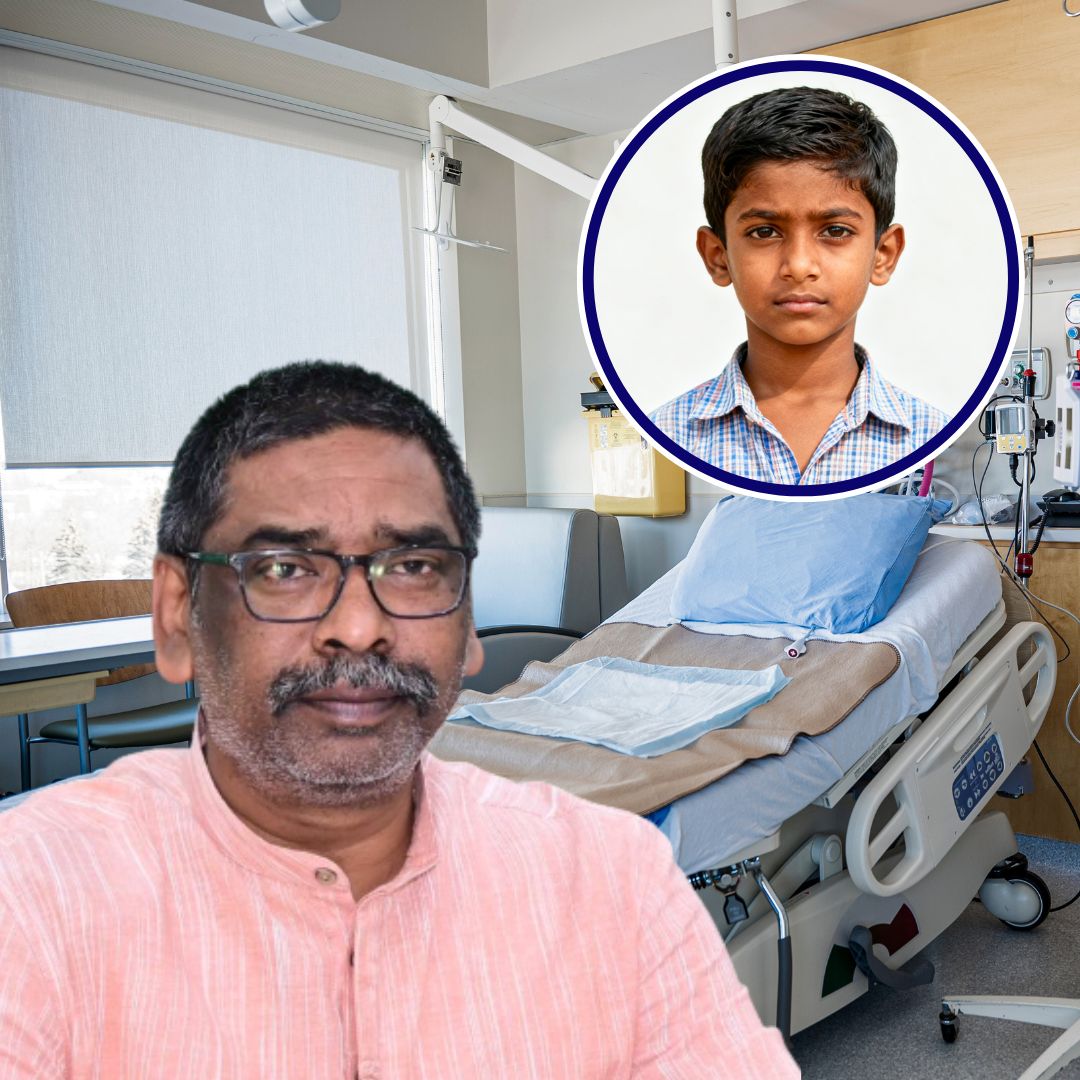Jharkhand is grappling with a serious health crisis after several children with thalassaemia were transfused with HIV-infected blood at Chaibasa Sadar Hospital in West Singhbhum district.
Chief Minister Hemant Soren has suspended the civil surgeon and several hospital officials, announced an immediate investigation, and promised Rs 2 lakh compensation plus full treatment for affected families.
The Jharkhand High Court has intervened, and a state-wide audit of blood banks is underway, with authorities warning that further disturbing revelations may surface.

Background: Unfolding of a Crisis
The issue came to light when a seven-year-old thalassaemia patient tested HIV-positive after a blood transfusion, prompting the Jharkhand High Court to take suo motu cognisance and demand a report from the state’s Chief Secretary.
At first, it appeared only one child was affected, but subsequent investigations by a five-member medical team led to the discovery that five children had contracted HIV. Local families raised alarms and lodged complaints with district authorities, highlighting broader concerns about blood bank safety.
Investigations, Allegations, and Lapses
The investigative team, including senior officials and doctors such as Dr Dinesh Kumar and Civil Surgeon Sushanto Kumar Majhee, conducted a surprise inspection of the hospital’s blood bank and paediatric ward. They found severe lapses including unsafe storage, inadequate testing, and deficient handling of blood units.
There are allegations from local representatives, such as council member Madhav Chandra Kunkal, suggesting personal grievances may have played a role, with past incidents involving blood bank staff members under police scrutiny.
The state ordered the blood bank to remain operational only for emergencies while all blood stocks are being re-examined and the donors tested. Civil Surgeon Majhee stated that while the child tested positive, the source of infection remains uncertain, with other potential causes like contaminated needles also under probe.
The Logical Indian’s Perspective
This tragic episode highlights critical gaps in public health oversight, particularly for children living with chronic illnesses like thalassaemia.
Swift action, audits, and support for affected families are only first steps; for meaningful change, systemic reforms and a culture of empathy and vigilance must follow. Greater dialogue among healthcare workers, administrators, and community members is crucial to prevent such preventable tragedies.
News in Q&A
1. What exactly happened at Chaibasa Sadar Hospital?
Several children with thalassaemia were transfused with HIV-infected blood at Chaibasa Sadar Hospital in West Singhbhum, Jharkhand, triggering a statewide healthcare emergency. The first case came to light after a seven-year-old tested HIV-positive following a blood transfusion, leading to the discovery of four more cases through a surprise inspection by a five-member medical team.
2. What steps are officials and the government taking?
Chief Minister Hemant Soren has suspended the civil surgeon and several hospital staff, ordered a high-level probe, and directed an audit of all blood banks across Jharkhand to be completed within five days. Each affected family will receive Rs 2 lakh in compensation, along with full support for medical treatment. The state health directorate is re-examining all blood stocks and has restricted the blood bank’s operations to emergencies while deficiencies are addressed.
3. How did the infection occur and what failures were found?
Investigators uncovered serious deficiencies including unsafe storage, inadequate screening, and poor procedures for blood handling and distribution. Families and local representatives have alleged that personal grievances involving blood bank staff may have contributed to lapses, with local police investigating prior incidents linked to staff behaviour. While Civil Surgeon Sushanto Kumar Majhee indicated it is “too early” to conclusively link all HIV cases to the blood supply, other possible causes—such as contaminated needles—are being considered.
4. What is the current status and future of the investigation?
The Jharkhand High Court has actively intervened, instructing the Chief Secretary to provide a detailed report and ordering the health department to ensure accountability. A separate inquiry is underway by a three-member committee headed by the District Reproductive and Child Health Officer. Authorities have warned that further revelations may be imminent as the investigation extends to more units of blood and additional hospital procedures.
5. How are the victims and families responding, and what are the broader implications?
Affected families have raised concerns and demanded answers from district and state authorities, with some alleging deeper problems within hospital administration and blood bank oversight. Civil rights advocates and medical professionals are calling for stricter protocols and systemic reforms to safeguard patient safety. The incident has sparked public outrage, renewed scrutiny over India’s healthcare systems, and calls for patient-centred reform.













